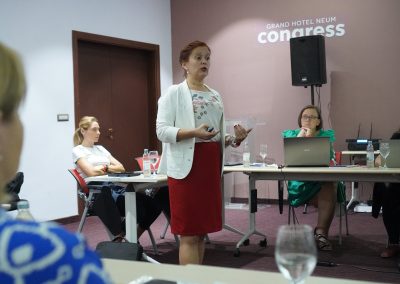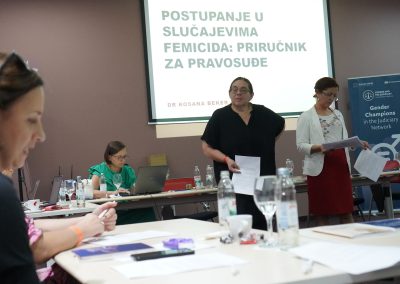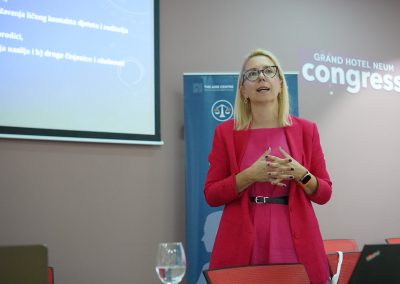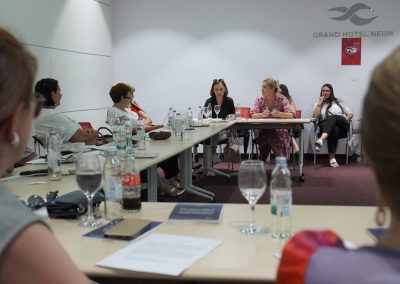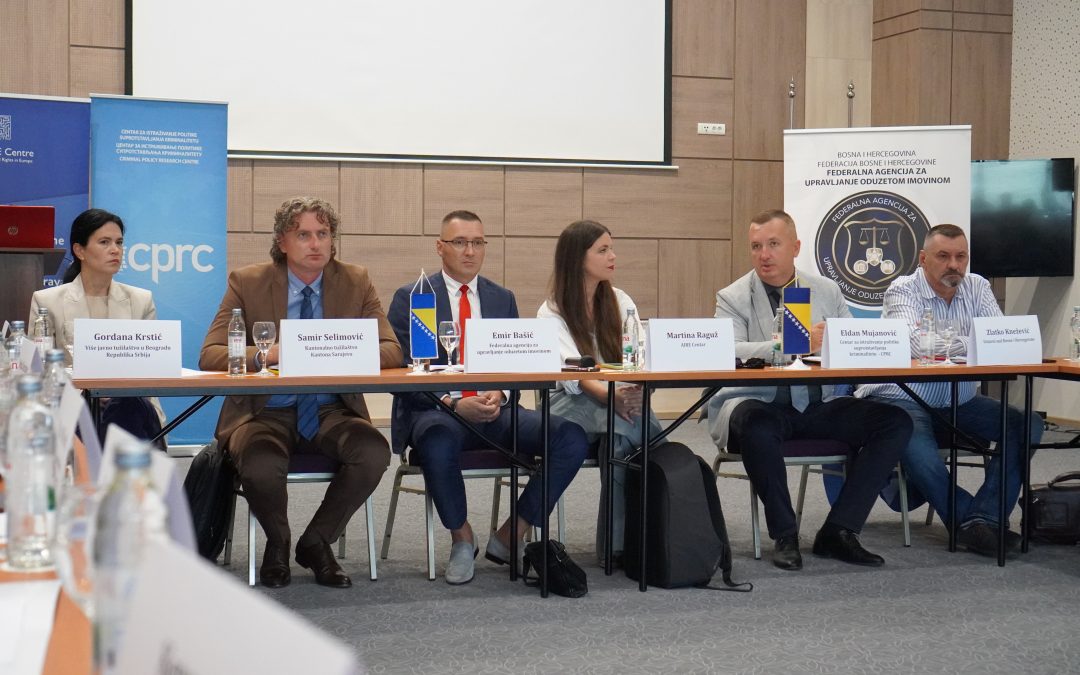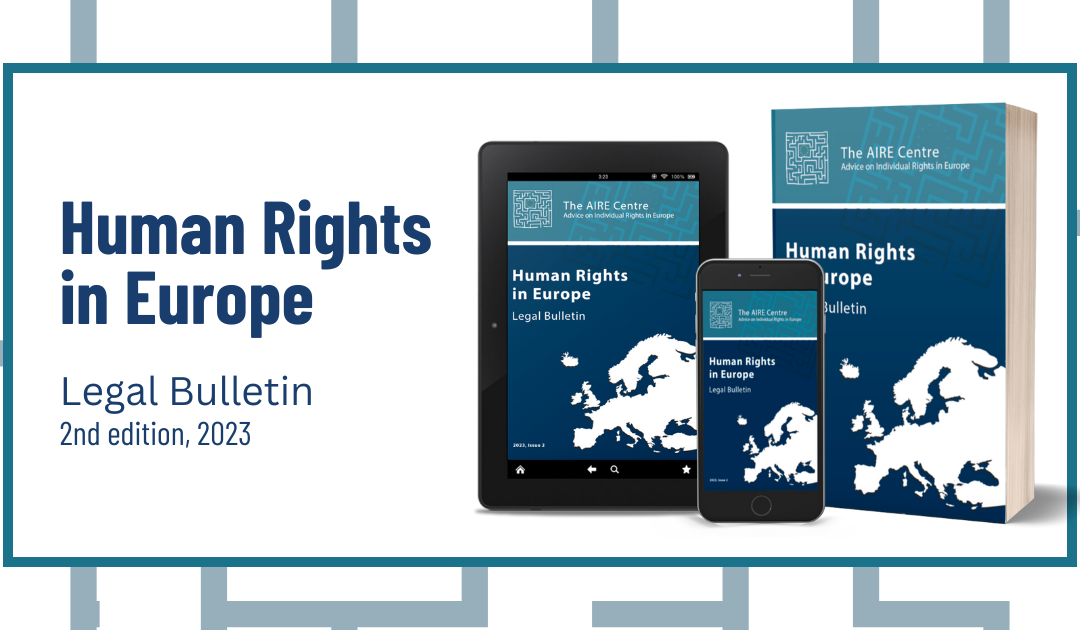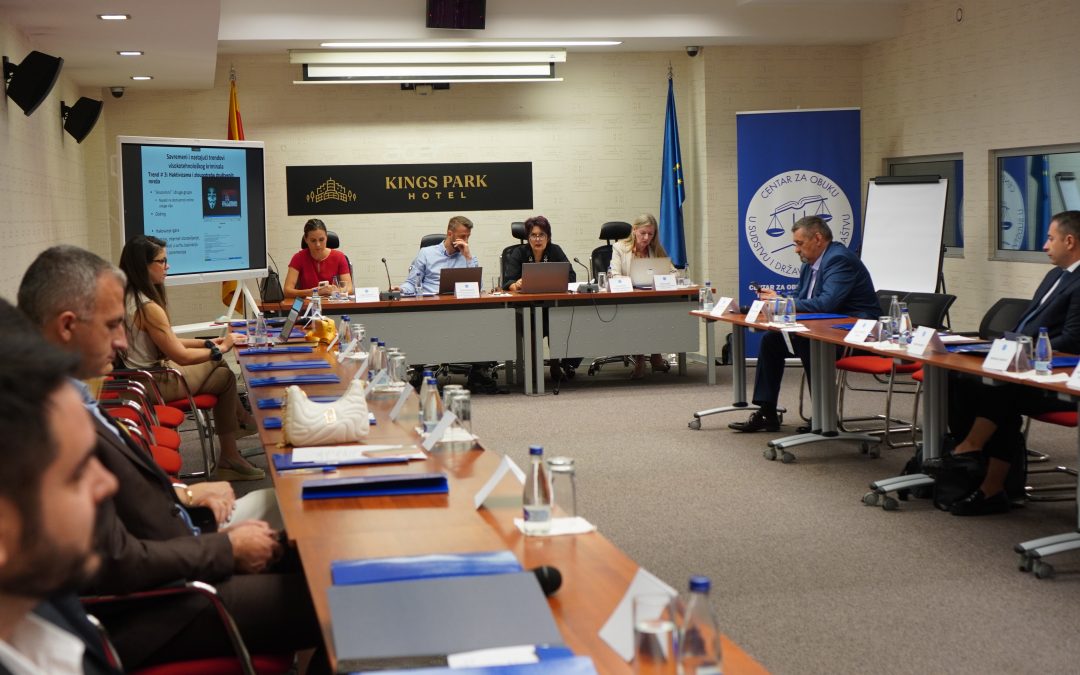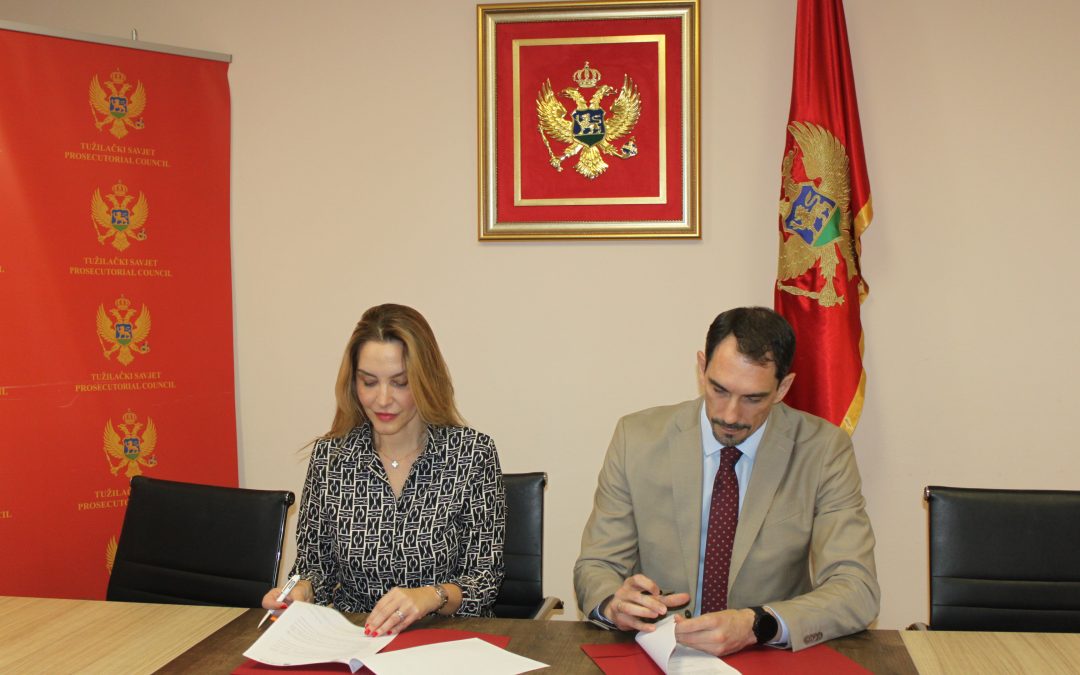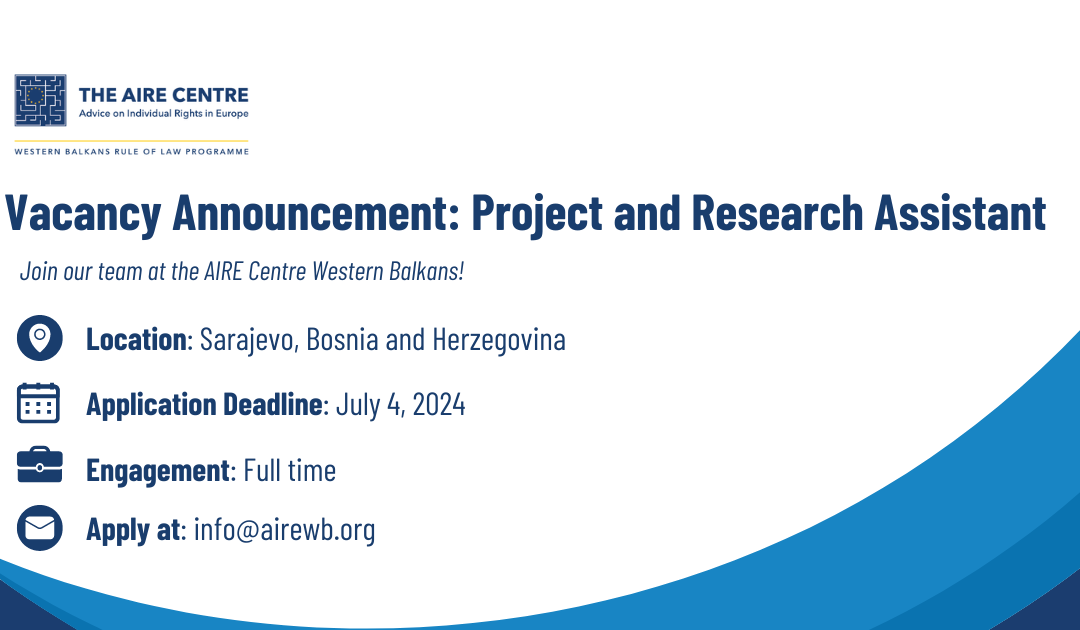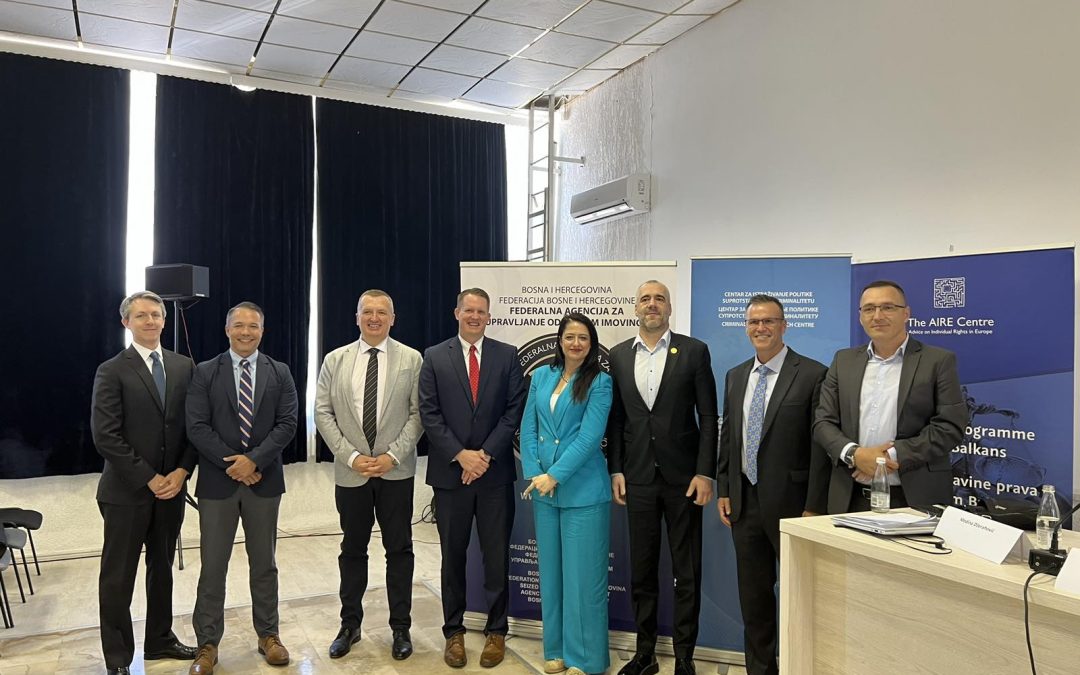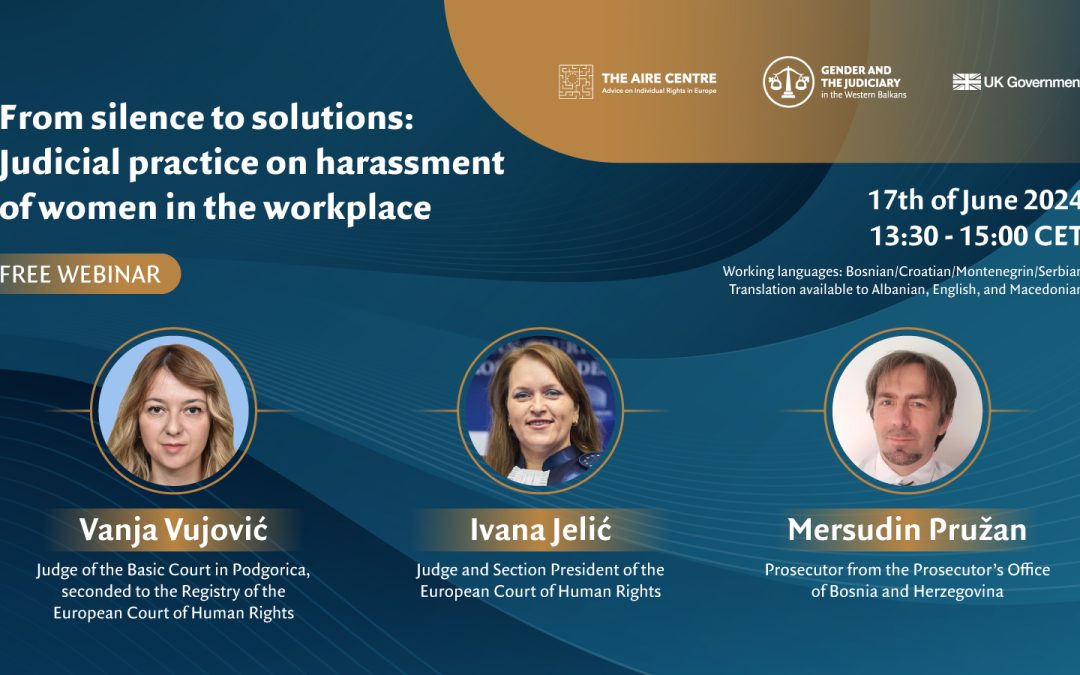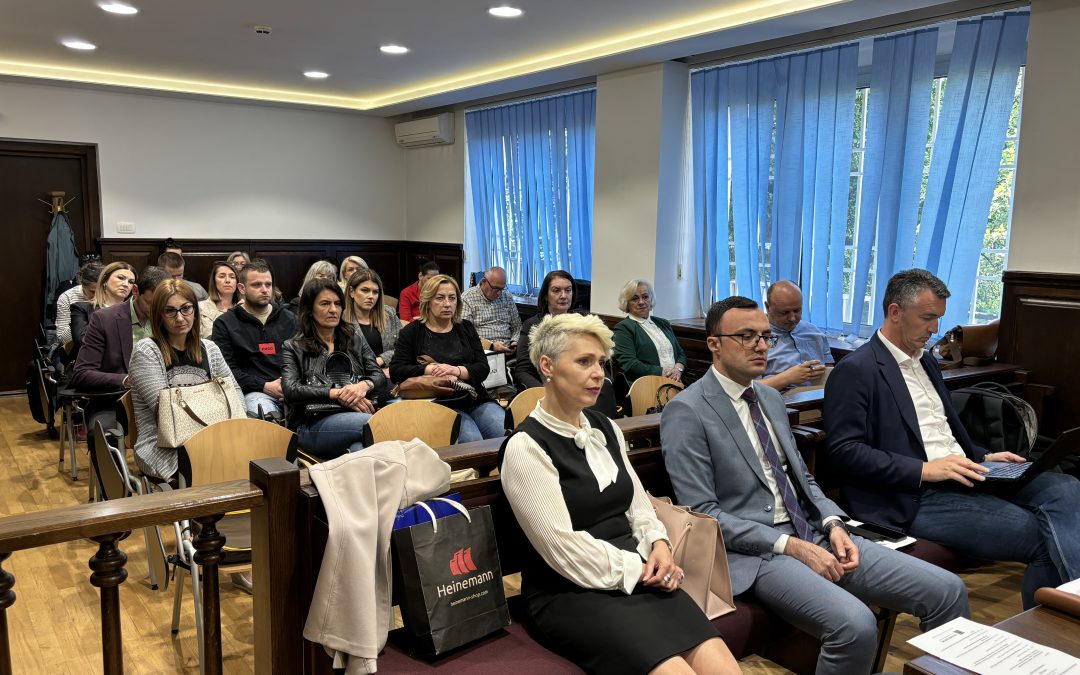Gender-based violence, with femicide as its most extreme form, is a pressing issue in Bosnia and Herzegovina. With proper risk assessment, almost every femicide can be prevented, making it crucial to improve responses to early signs of violence and risk management. This was the conclusion at the seminar “Analysing judicial responses in cases of violence against women and children in the judicial practice in BiH”, organised by the AIRE Centre and the Atlantic Initiative with the support of the Government of the United Kingdom.
“The current challenges for the judiciary in BiH include the correct identification of criminal offences applicable to gender-based violence, the identification of the judicial level that should handle a particular case, the understanding of the basic characteristics of the offence, such as gender, sex, and the like, and the preparation of reports on committed criminal offences by police officers and the collection of adequate evidence to prove these offences”, said Mersudin Pružan, a prosecutor at the Prosecutor’s Office of BiH.
Prosecutor Pružan explained that sexual harassment, as a form of gender-based violence, is not reported often enough, and even when it is, police officers and judicial authorities are not sufficiently sensitized to recognize the importance of this offense. “This problem represents the tip of the iceberg, and if timely action is not taken against this form of gender-based violence, the forms of violence by the perpetrators can become much more severe, including fatal outcomes for the victims.”
Fatal outcomes are mostly preventable — but only with timely institutional reactions to early signs of violence, including physical, psychological, and economic violence. Non-governmental organisations, which primarily rely on media reports due to a lack of official information, are recording an increase in cases not only in BiH but also in the region. However, inadequate judicial responses are primarily rooted in a lack of understanding of the gender dimensions of these crimes.
“The causes of violence against women can be viewed from multiple aspects, as well as its consequences. The social context in which we live and the slow change of deeply rooted gender roles that patriarchal society assigns to women, but also to men in today’s time, is very questionable and debatable”, warned Gorjana Mirčić Čaluković, a prosecutor from Serbia.
“When representing charges or passing judgments on behalf of the state, judicial representatives are obliged to consider the context of each event, to thoroughly explain decisions, particularly in the part that relates to aggravating and mitigating circumstances, as this influences others not to commit such criminal acts. This is the only proper response of the state to this scourge”, explained Prosecutor Mirčić Čaluković.
An analysis by the AIRE Centre and partner organisations from the region, “Judicial Response to Femicide in the Western Balkans: Legal Framework and Judicial Practice”, showed that most femicides were committed in the victims’ homes and that the perpetrators, in most cases, were their intimate partners and family members.
“The AIRE Centre’s research showed that for women suffering from violence, the most dangerous place is their home, and they feel the least safe with their closest ones. The case analysis indicates that there are indicators that can help in identifying and preventing femicide. Most murders were preceded by prolonged violence, or the filing of a divorce request and leaving the perpetrator, making femicide almost predictable; however, these cases were either not reported, or in cases when they were reported, there was no adequate institutional response. This education aims to address an important question — the role of prosecutors in the entire process, to primarily prevent crimes and adequately investigate and ultimately punish them”, said Sabina Đapo, project manager of the AIRE Centre.
A good judicial response can contribute to curbing gender-based violence and femicide only if the sentences reflect the gravity of the crime. During the event, the handbook for the judiciary “Guidelines on Addressing Femicide Cases” was presented, which provides guidelines for protecting victims’ rights during the process, including claims for damages in criminal proceedings, as well as the qualification of the criminal offence and the determination of penalties.
Maida Ćehajić-Čampara presented the Atlantic Initiative’s research, which thoroughly analyses 196 final judgments for domestic violence under Article 222 of the Criminal Code of the Federation of BiH and Article 208 of the Criminal Code of Republika Srpska from 2019, 2021, and 2022. The research indicates an improvement in judicial practice in assessing mitigating and aggravating circumstances in domestic violence cases compared to the complementary Atlantic Initiative research from 2018. The research shows that conditional sentences still dominate (59.7%), but a significant number of perpetrators were sentenced to prison (25.5%), with only a smaller number of cases ending in acquittals or fines as stated in the presentation.
Majda Halilović from the Atlantic Initiative based her presentation on the recently published book “Why Did You Kill Her: Causes and Prevention of Femicide”. Dr. Halilović familiarised the audience with high-risk factors, such as divorce/separation, threats of murder, a history of violence, possession of weapons, stalking, custody disputes, and other factors that need to be carefully considered and assessed to prevent the escalation of violence and femicide. The attendees discussed examples from practice, challenges in multisectoral cooperation, and ways to improve the protection of domestic violence victims.

